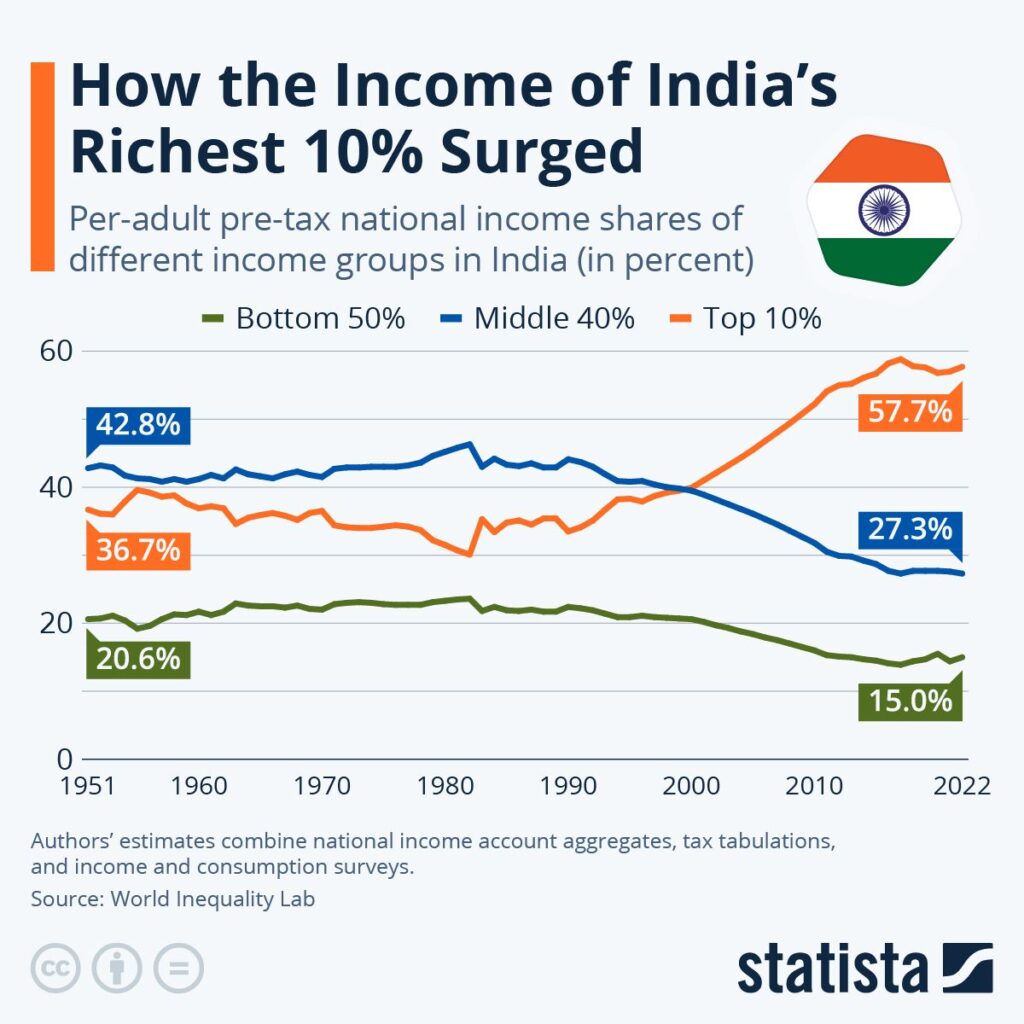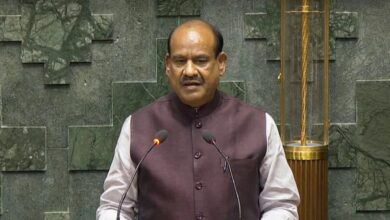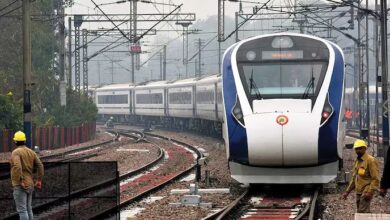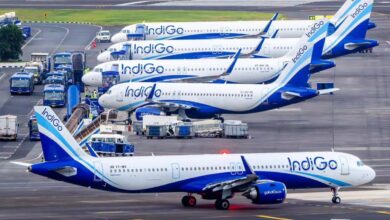India’s Income Inequality Now Worse Than During British Rule, Says Shocking New Report
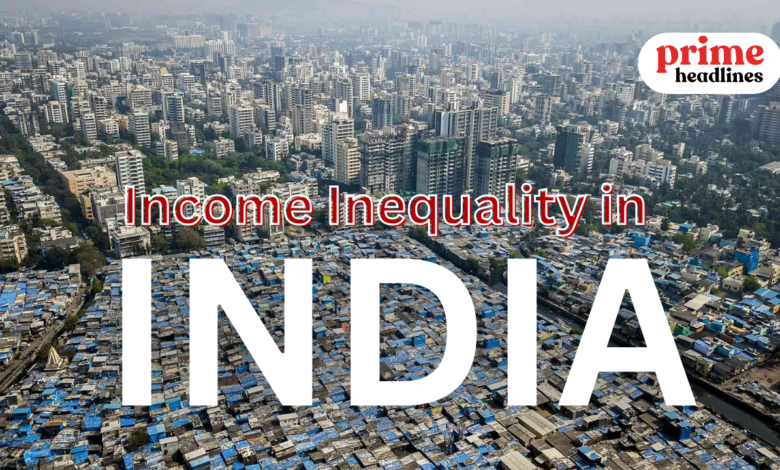
PrimeHeadlines.com | July 2, 2025
A recent economic study has sent shockwaves across India by revealing a grim truth — income inequality in India today has surpassed levels seen during British colonial rule. The report paints a deeply troubling picture of a nation where wealth is increasingly concentrated in the hands of a few, while the majority continue to struggle with low wages, poor living conditions, and shrinking economic opportunities.
📊 Key Findings from the Report:
The report, released by a team of economists from the World Inequality Lab, highlights the staggering rise in the income share of India’s top 1%, which now holds more than 22.6% of the national income, the highest in over 100 years — including the colonial era. In contrast, the bottom 50% of the population owns less than 13% of the country’s wealth.
This means that India’s elite are growing wealthier at an unprecedented rate, while half the nation lives on meager daily incomes, struggling for access to quality education, healthcare, and employment.
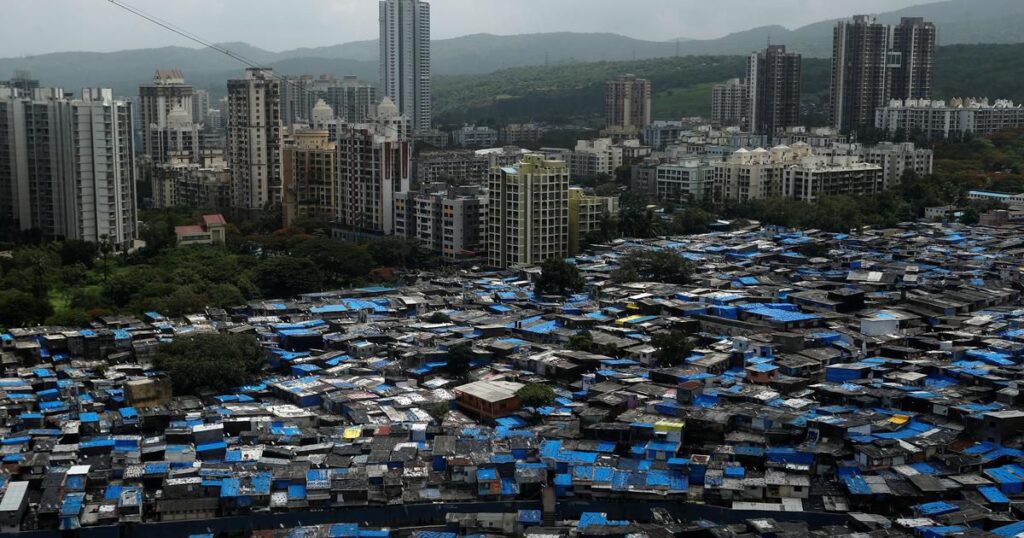
🏙️ Two Indias: A Nation Divided
The viral image accompanying the report — of Mumbai’s ultra-modern skyline towering over slums — is a stark symbol of this growing inequality. It encapsulates the divide between “India and Bharat”, where luxury apartments stand beside crumbling huts, and billionaires grow richer as rural farmers and urban workers drown in debt.
The study compares current inequality with the economic structure under British rule, where the East India Company and colonial elites dominated the wealth structure. Shockingly, today’s data shows a wider gap, suggesting a crisis of distribution in the post-liberalization economy.
📉 Reasons Behind the Inequality Surge:
Privatization and deregulation that benefit big corporations
Decline in public sector jobs and social welfare
Stagnant wages for the working and middle class
Tax policies that favor the rich
Rising cost of education, healthcare, and housing
👥 Voices of Concern
Leading economists and social activists warn that this growing disparity poses a threat to India’s democratic fabric, social cohesion, and long-term economic stability.
> “When prosperity is monopolized, democracy becomes fragile,” says economist Thomas Piketty, who contributed to the study.
“The Indian economy is booming, but the benefits are not trickling down. This inequality is unsustainable,” said Jayati Ghosh, a noted Indian economist.
🧭 What’s the Way Forward?
The report urges urgent action, including:
Progressive taxation of ultra-wealthy individuals and large corporations
Increased investment in public education, healthcare, and infrastructure
Social security for the poor and working class
Minimum wage reforms and job guarantees
India, the world’s fastest-growing major economy, now faces a moral and structural crisis. While skyscrapers rise and billionaires make headlines, millions go to bed hungry, jobless, and invisible.
The report is a wake-up call for policymakers, the corporate sector, and society at large: growth without equality is not progress — it’s a powder keg.
